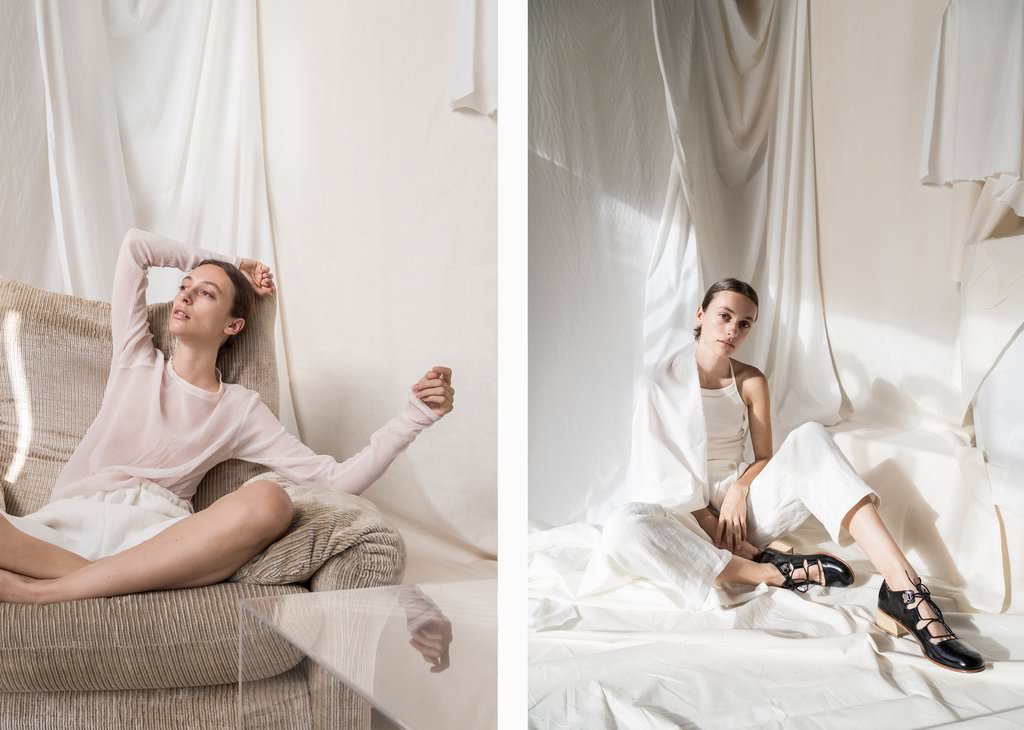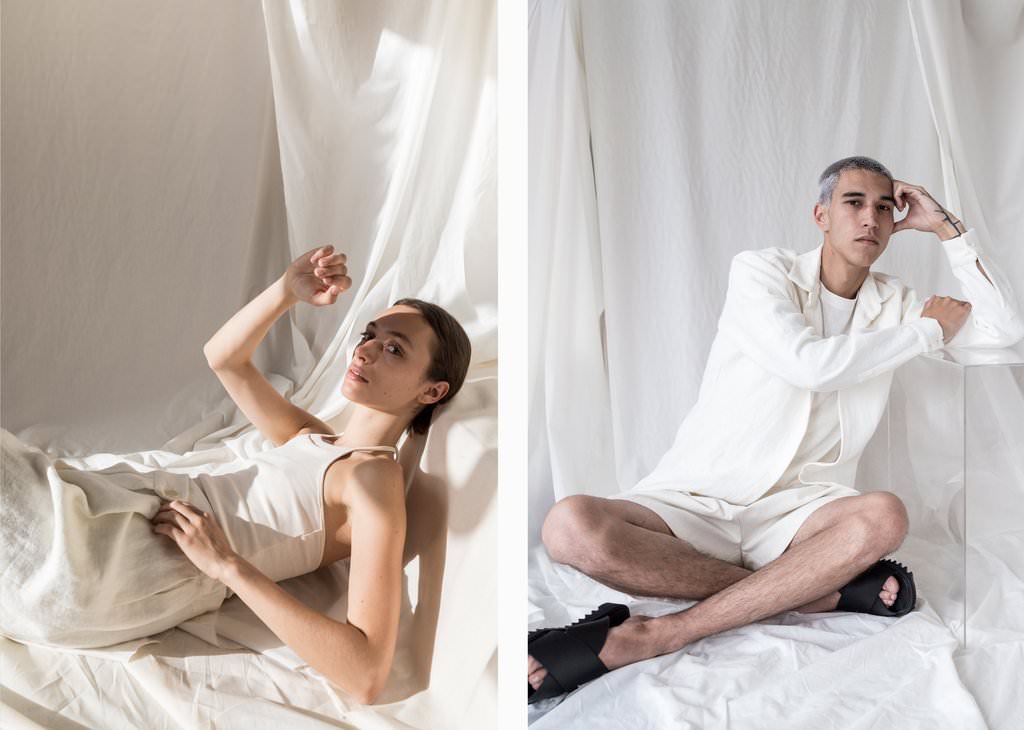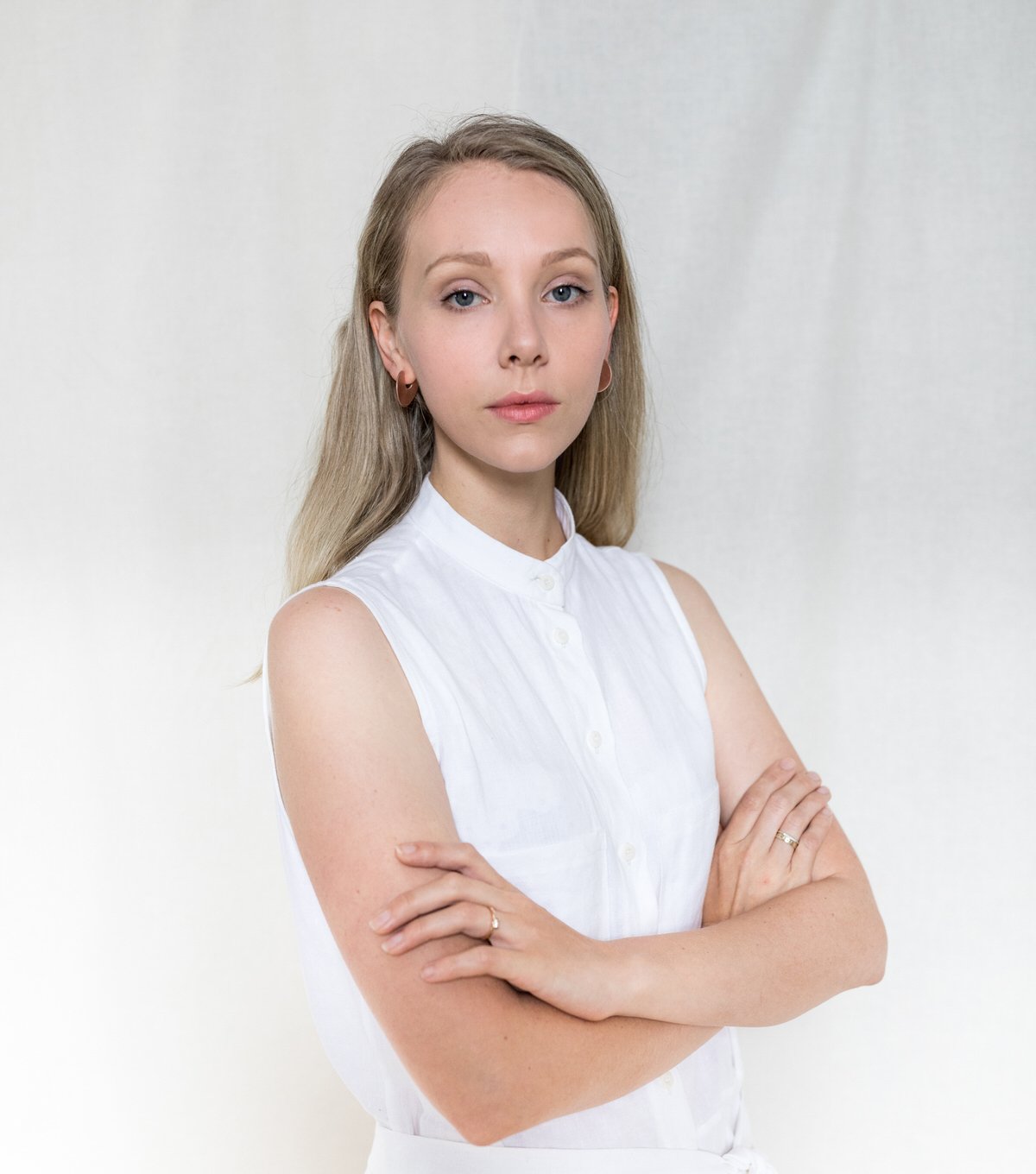The Creative Behind – A.BCH
Meet the leader of Australian fashion circularity who is also driving ethical and sustainable fashion production processes, Australian designer Courtney Holm of A.BCH.
How did you start A.BCH?
A.BCH was born out of a desire to see real change in the fashion industry. I was really struggling to reconcile personal values with work, and A.BCH was a way to express the values I felt so strongly about in a brand. With literally no labels addressing circularity, A.BCH aims to fill that gap and create solutions and information for a circular economy, even though the industry has a lot of catching up to do.
Why is sustainable fashion important to you and your brand?
The current system is a mess. I couldn’t bear to be a part of that mess unless I was doing something radically different to change it. This is why A.BCH exists. I want to help people see past the greenwashing and learn how to consume less, and when they do buy new, to buy smarter. Without this mission, we would just be adding to the noise. We want to cut through that.
Where did you grow up and how did your experiences shape the person you are and influence your career as an Australian Designer?
I grew up in the USA, and then in Australia. Both my parents had their own businesses and myself and my three sisters were all very creatively driven. I think these things have had an impact on me. I’ve always been involved in the arts and various forms of creative practise. It just so happened the fashion medium was the thing that spoke to me the loudest.
Why is transparency so important to your brand and how you curate your collections?
Transparency is the only way that a brand can truly be held accountable to meet sustainability goals and to challenge to what can be done. This is the foundation of A.BCH and allows us to be totally honest with our audience while searching for new ways to improve along the way. No fashion brand claiming to be sustainable or ethical can be 100% certain of those claims and if there is no transparency into how they are backing up these claims, then they probably have something to hide.

What does a typical day look like for you at A.BCH?
No day is typical, really! Somedays I am pattern-making samples, sewing made-to-order garments or visiting local suppliers. There’s plenty of order packing and ensuring our walk-in customers are looked after in the shop. Other days are much less exciting, doing bookkeeping and lots of admin stuff like paying bills. Some of my favourite days are when I can dedicate time to research and development into new and innovative materials, designing and prototyping. I also love the days when we host workshops in the studio.
How do you stay on top of your game emotionally and physically? Any tips on how to manage stress?
I try to get outside at least once every day, weather permitting. To be honest, I’m not great at managing all my stress just yet, but I am working on it and feel I am getting better at it. Taking a day off sometimes, when things are really hectic, can often lead me to be more productive than when I power on. I also really like getting out of my natural day to day to clear my head. A walk on the beach or an ocean swim is pure therapy.

What motivated you to create a range from eucalyptus fibre?
Tencel Luxe is an amazing fibre and a great alternative to conventional fibres. I wanted to create a plant-based luxury capsule with fabric that can rival silk. Tencel Luxe is the perfect fibre for this application. It’s beautiful, cruelty-free, renewable, soft, drapey, breathable, strong and comfortable. Besides all of this, it’s totally biodegradable.
What are some of your tips for shopping ethically?
My key tip would be to define your values first, this is super important to working out how to shop in a way that’s right for you. From there, thrifting, getting educated on better fibres, shopping locally and buying a heck of a lot less are all up there too.
What would be your advice to an aspiring Australian designer wanting to work within the sustainable fashion industry?
Do a lot of research as starting a business is not easy, nor is reinventing the wheel. If you are truly passionate about sustainability, consider working for someone who inspires you in the space and learn from them while helping them shape the future rather than starting something prematurely on your own, as the world already has enough stuff in it. Not all fashion designers graduating university are going to get work as designers.
Consider other amazing jobs for your future. Look at end of life, garment recycling, rentals and new methods of manufacturing. I think more fashion designers should study science. he intersection of scientific approaches with creative design is going to be huge for circularity in the future.
You can follow the journey of Australian designer Courtney Holm via the official A.BCH website and Instagram.



